Corporate Australia’s eyes turn to the US and the effect of a second Donald Trump presidency
Corporate Australia will be watching the impact of a Trump presidency, with those operating in the US expecting to benefit from a pro-business regime despite the prospect of tariffs hitting the global economy.
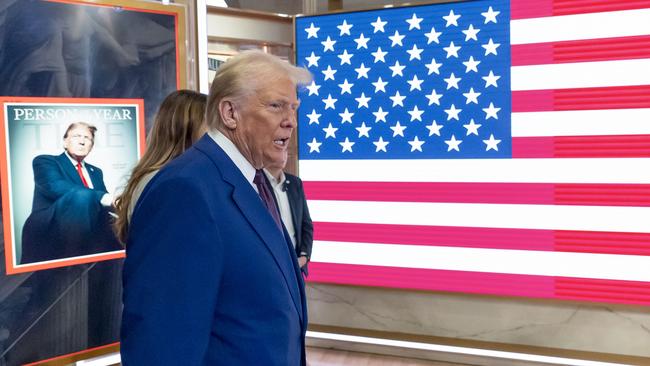
Corporate Australia is closely watching the impact of a second Donald Trump presidency, with those with US exposure expecting to benefit from a pro-business regime despite the prospect of tariffs hitting the global economy.
But chief executives canvassed in The Australian’s CEO Survey 2025 also had concerns over the potential inflationary impacts of Mr Trump’s policies and the negative effect on Australia from a trade war with China.
Trump good for mining
Rio Tinto’s chief executive Jakob Stausholm thinks a Trump presidency could support his mining business.
The global mining giant has been awaiting approval for its Resolution Copper mine in Arizona, which it jointly owns with BHP.
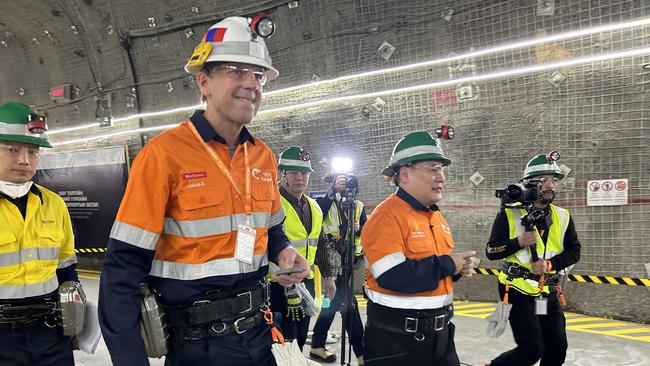
The companies have spent more than $3bn in developing and permitting activities on the mine, which could become the largest copper producer in North America, but the project has stalled, waiting on approvals from the Biden administration.
“It’s clear there is an increasing recognition of the need for domestic supply sources of copper
and other critical materials in the US, to support manufacturing and a clean energy future,” Mr Stausholm said.
“We can play a significant role in helping to deliver these materials and will continue to engage in the dialogue around this.”
Confidence to invest in US
Woodside chief executive Meg O’Neill said her company’s LNG operations in Louisiana could benefit if Mr Trump lifted the Biden administration’s freeze on new LNG developments.
She said Woodside’s confidence about investing in the US was shown by its recent investment in a proposed LNG production facility and export terminal in Louisiana LNG, and a clean ammonia project in Beaumont, Texas.
“Louisiana LNG is fully permitted, so should the pause on US LNG developments be lifted, it would have a competitive advantage over other projects still needing environmental and other approvals,” she said.
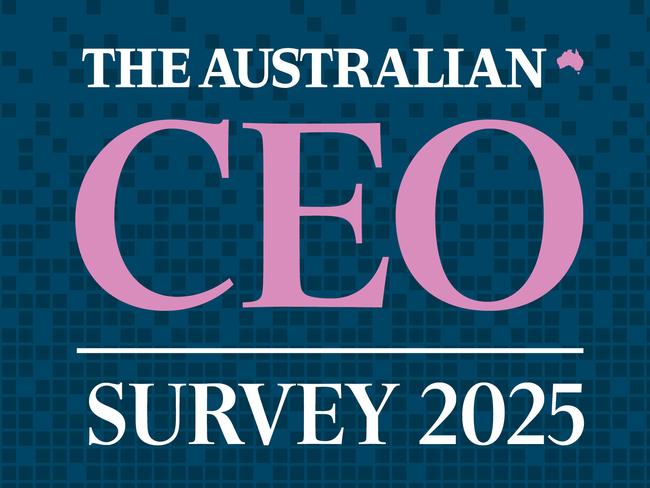
South32 chief executive, Graham Kerr, said he expected that Mr Trump would “continue support for the development of domestic critical mineral supply chains”.
He said he expected there would be continued support for its Hermosa project in Arizona, the only advanced mine project in the US which could produce the federally designated critical minerals, zinc and manganese.
Manufacturing boost
Greg Goodman, chief executive of global property company the Goodman Group, said his company was watching the new administration closely given the company’s significant operations in the US.
“The growth in the US economy is important to Goodman,” he said.
“We’re looking for confidence in economic growth as that drives customer demand for our properties.”
Mr Goodman said geopolitics had become an important factor for global companies such as his in making its decisions on where to invest money.
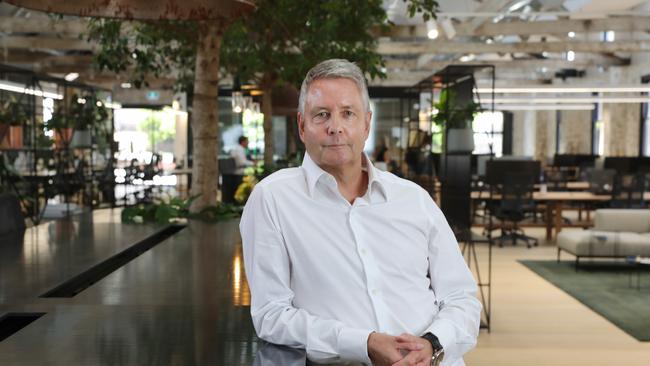
Incitec Pivot chief executive Mauro Neves said his company’s Dyno Nobel operation had a strong US manufacturing footprint with some 1700 employees across 43 locations, including eight manufacturing sites.
“We think any potential international tariffs impacting Australian exports will be more than offset by support for our US-based manufacturing of explosives systems, products and related technology,” he said.
The chief executive of property group Charter Hall, David Harrison, said the second Trump presidency increased the prospect of a more expansionary policy in the US which had boosted the US share market.
“If equity markets continue to increase, it creates further investment capacity for institutional investors to invest in property,” he said.
He said any volatility in US markets as a result of policy changes could also see investors “gravitate toward the safety and risk-adjusted forward returns Australia’s high quality real estate offers.”
Impact of US tariffs
ANZ chief executive Shayne Elliott said his bank was looking at a “world of change – changing tariffs, changing taxes, changing policies and priorities”.
He said change was good for banks like ANZ, which could help customers adjust to cope with changing policies in major markets.
He said any increase in US tariffs could see businesses change their trading patterns.
He also said the bank was also closely following the impact of potential policy changes such as Mr Trump’s attitude to the Biden administration’s Inflation Reduction Act, which could “present both challenges and opportunities for ANZ”.
NAB chief executive Andrew Irvine said the clear election result in the US gave markets certainty, but he said there were concerns about a potential trade war between the US and China.
“We will have to see how Mr Trump’s comments about increasing tariffs play out over time, but it’s clear, no one wins in a trade war,” he said.
But he said Australian companies were in a much stronger position than in the past as they have diversified their exports across many markets.
Inflation
The chief executive of the $340bn AustralianSuper, Paul Schroder, said he was concerned about the inflationary impact of Mr Trump’s policies.
He said the new President’s policies on tariffs, tax policy, immigration and corporate regulation could have a significant impact on the global economy.
While his policies on tariffs and immigration would have “negative supply shocks” which would dampen spending and output, he said Mr Trump’s policies on tax cuts would stimulate the economy.

“Timing and implementation clearly matter,” he said.
“But the inflation outcome is expected to be ambiguously worse.”
Mr Schroder said there were also concerns about how the US-China relationship would play out and its implications for Australia.
“We anticipate the US will continue to de-risk trade under the new US administration,” he said.
“Any significant deterioration will have strong impacts on the Australian economy.”
He said geopolitics had become an increasingly important factor in AustralianSuper’s decision making on investing, particularly in the post-Covid era.
“The 2010s marked a distinct shift in the geopolitical environment from the post-Cold War period of US leadership in a rules-based, neoliberal global system to one that is more fractious, with major powers under competing ideological models,” he said.
“As a global investor, our role is to look for the signal in the noise to determine what is important in the global economic environment, particularly in terms of disrupting markets, shifting supply chains and triggering shifts in the economic cycle.”


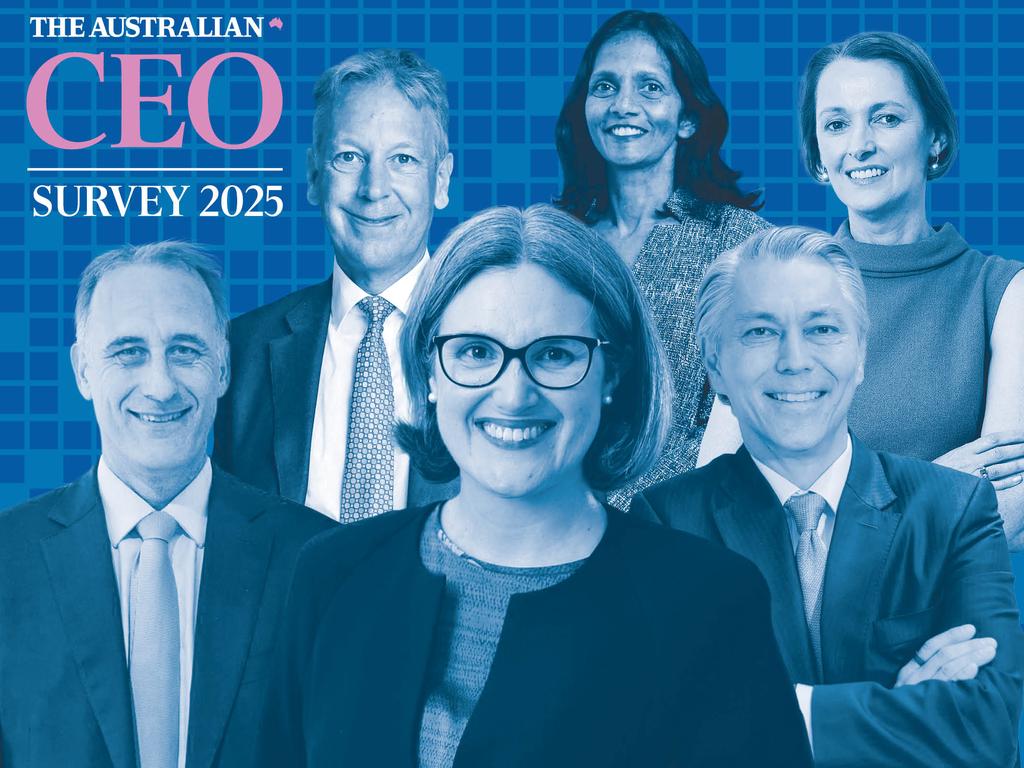



To join the conversation, please log in. Don't have an account? Register
Join the conversation, you are commenting as Logout